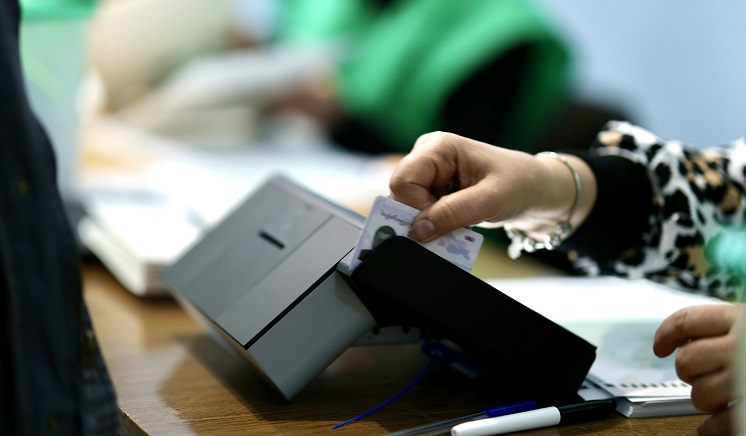International observers: Georgian elections “largely peaceful”, legal framework “adequate” for holding “democratic” vote

The observers stressed the election administration had organised the vote “efficiently”. Photo: CEC
Observers from the Organisation for Security and Co-Operation in Europe Office for Democratic Institutions and Human Rights, the OSCE Parliamentary Assembly, the Parliamentary Assembly of the Council of Europe, the NATO Parliamentary Assembly and the European Parliament on Sunday commended what they called the “largely peaceful” general elections in Georgia on Saturday and its “adequate legal framework” for holding “democratic elections”.
In a joint briefing in Tbilisi, the observers stressed the election administration had organised the vote “efficiently”, but added the public perception of its impartiality was “harmed by concerns about recent changes over its nomination and decision-making processes”.
Election day was generally well organised procedurally and orderly, but it was marked by a tense environment. The secrecy of the vote was frequently compromised and there were reports of intimidation and pressure on voters”, they said.
The campaign was “competitive although subdued”, but the language and imagery used were “highly divisive”, the observers noted.
They highlighted the elections were marred by “entrenched polarisation and concerns over the recently adopted legislation [on transparency of foreign influence] and its impact on fundamental freedoms and civil society, as well as highly divisive campaign rhetoric and widespread reports of pressure on voters”.
The observers further noted “deepening political divisions”, as well as a “significant imbalance in financial resources” and the “many advantages taken” by the ruling Georgian Dream party had “contributed to an already uneven playing field”.
Imbalances in financial resources, a divisive campaign atmosphere, and recent legislative amendments were of significant concern throughout this election process”, said Pascal Allizard, the Special Coordinator and leader of the OSCE short-term observer mission.
“Yet the engagement shown on election day - from the active voter participation, robust presence of citizen and party observers, and rich diversity of voices - gives the sign of a system that is still growing and evolving, with a democratic vitality under construction”, he added.
Iulian Bulai, the Head of the PACE delegation, claimed the elections were marked by “high polarisation of the political and media landscape, hate speech against the opposition and the civil society and antagonism towards the office of the President”.
The observers further noted that despite a Constitutional obligation to ensure gender equality, legal changes made this year had “undermined the aim” and led to a “significant decline” in the number of women on party lists for the elections.
While we commend the largely peaceful election, the decline in female candidates due to the removal of gender quotas is a setback for diversity, especially as women’s active participation at polling stations highlights their vital role and demand for greater representation”, Pia Kauma, the Head of the OSCE PA delegation, said.
International election observer missions for the elections in Georgia totalled 529 observers from 42 countries, composed of 380 ODIHR-deployed experts, long-term, and short-term monitors, 60 parliamentarians and staff from the OSCE PA, 39 from the PACE, 38 from the NATO PA, and 12 from the EP.
 Tweet
Tweet  Share
Share